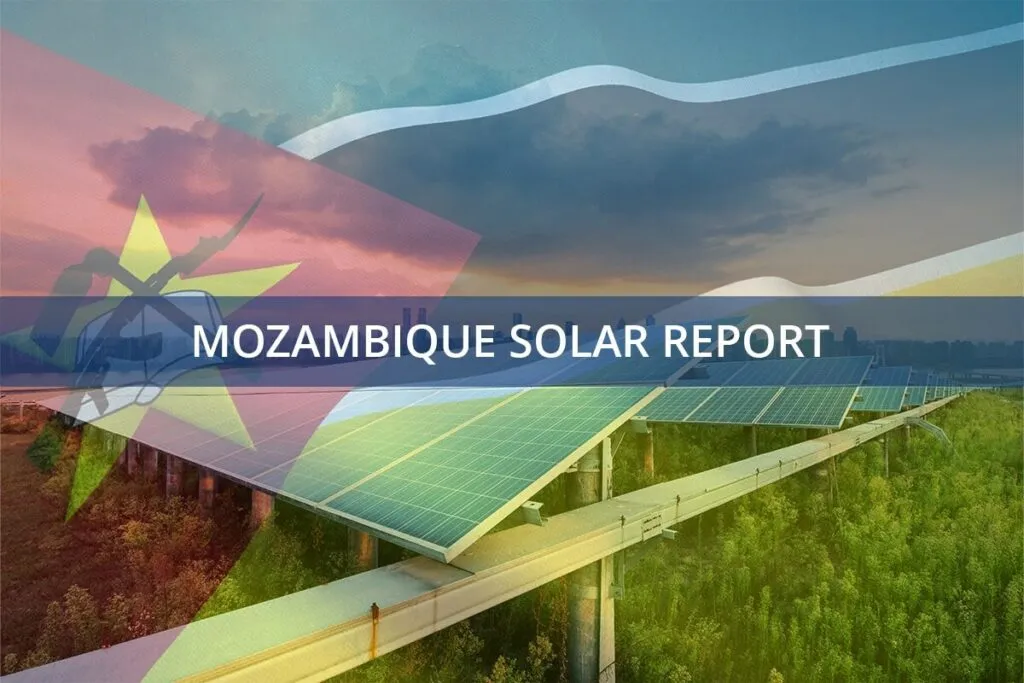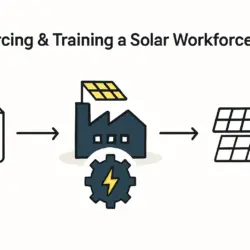Enabel’s Solar Irrigation Initiative in Mozambique: A Step Towards Sustainable Farming
Enabel, the Belgian development agency, recently hosted a roundtable in Maputo, Mozambique, to promote solar-powered irrigation. This initiative aims to enhance agricultural productivity and reduce dependence on fossil fuels—a pivotal move toward sustainable farming practices in the region.
A Gathering of Minds on Solar Irrigation Solutions
The roundtable brought together a diverse group of stakeholders, from government officials and local farmers to renewable energy experts and international partners. Discussions at this key agriculture solar event centered on the strategies and challenges of implementing solar energy in agriculture, emphasizing its broader benefits for both sustainable farming and rural development.
Mozambique’s Growing Commitment to Solar Energy
Mozambique is making significant strides in the renewable energy sector, with a particular focus on solar power. A solar tender is currently open, seeking independent power producers to develop and operate solar-plus-storage projects across various provinces. This initiative aligns with the country’s goal to increase its solar capacity and enhance both energy access and reliability.
Another ambitious solar project is planned for Moamba in Maputo Province. This $110.6 million project is part of Mozambique’s broader effort to tap into its abundant solar resources, reduce its reliance on hydropower, and diversify its energy mix. The country aims to install 1,000 MW of solar capacity by 2030 and 7.5 GW by 2050, positioning itself as a green energy leader on the African continent.
The Benefits of Solar Irrigation for Sustainable Agriculture
Solar-powered irrigation systems offer multiple advantages for agriculture in Mozambique. They provide a clean, renewable energy source for water pumping, which is essential for farming, especially in remote areas where the electricity supply can be unreliable or non-existent. By transitioning to solar, farmers can significantly cut operational costs tied to fuel-powered pumps, boosting both productivity and profitability.
Moreover, solar-powered irrigation systems contribute to environmental conservation by reducing greenhouse gas emissions, aligning with global efforts to combat climate change. This shift also supports rural development by creating job opportunities in the renewable energy sector and improving the quality of life for communities that depend on agriculture.
Overcoming Challenges to Widespread Adoption
Despite these promising prospects, several challenges must be addressed to fully harness the potential of solar-powered irrigation. Key hurdles include high initial setup costs, the need for technical training for local farmers, and the development of infrastructure to support the distribution and maintenance of solar equipment.
Empowering a Sustainable Future for Mozambican Agriculture
The roundtable organized by Enabel in Maputo marks an important step toward promoting sustainable agriculture through solar energy. By fostering collaboration among stakeholders and highlighting the benefits of solar-powered irrigation, Mozambique is moving closer to achieving its renewable energy goals and securing a more sustainable future for its agricultural sector.
For more information on solar projects and developments in Mozambique, visit PVKnowhow.



